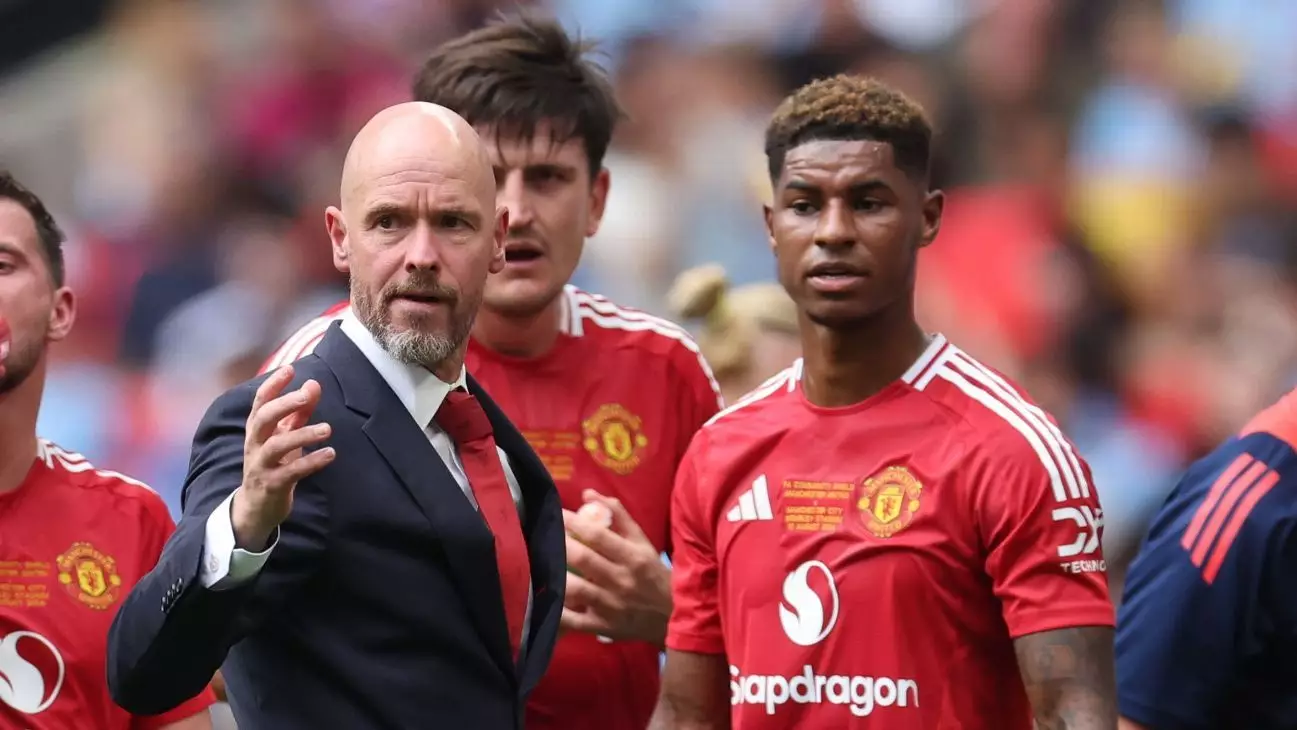In the ever-evolving landscape of football management, decisions can often lead to significant ramifications, extending beyond the pitch. Erik ten Hag, the manager of Manchester United, recently found himself at the center of controversy following his choice to bench striker Marcus Rashford during a match against Crystal Palace. The outcome, a scoreless draw, forced fans and pundits alike to question the rationale behind this surprising move, especially in light of Rashford’s recent performances, which included a noteworthy goal against Southampton and two strikes against Barnsley.
Ten Hag faced scrutiny when players’ performances veer from expectations, especially when a recent performance had resonated so positively with fans and analysts. Despite the criticism, Ten Hag emphasized that his decision stemmed from a strategy centered on player rotation. In a league as demanding as the Premier League, ensuring that players maintain peak physical condition is paramount. However, the question arises: does the public perception align with the practical necessities of squad management?
The Weight of Performance and Misinterpretation
The Dutch manager’s assertion that the decision was purely tactical seems to clash with prevailing narratives suggested by commentators. Jamie Redknapp, a notable Sky Sports pundit, insinuated that there may have been underlying tensions between Rashford and Ten Hag, further complicating public sentiment. Such speculations can create a narrative that unduly influences fan opinions and a player’s morale. This highlights a fundamental issue in sports media—how narratives can overshadow factual representations of strategies employed by coaches.
Rashford’s absence from the starting eleven not only raised eyebrows but reshaped the fans’ understanding of the team’s dynamic. Alejandro Garnacho, who took Rashford’s place, had the opportunity to shine but fell short, capitalizing on missed chances that could have altered the course of the match. The contrast in performance begs the question: does an underperforming substitute exacerbate the tension surrounding a player’s benching?
Looking Ahead: Challenges and Opportunities
After the disappointing result against Crystal Palace, Manchester United now finds itself lingering in the lower half of the Premier League table, which carries its own set of challenges. With upcoming fixtures against FC Twente in the Europa League and Tottenham in the Premier League, Ten Hag must navigate the complexities of squad rotation while fostering a positive atmosphere among his players. Rashford’s reaction to being benched and the subsequent media commentary could influence how the team approaches these pivotal matches.
As the season progresses, how Ten Hag manages both player performance and public perception will be crucial to the team’s success. Open communication with players and addressing concerns head-on can help mitigate speculation and unify the squad. Rashford is undeniably a valuable asset to United, and smart management of his contributions will be vital in ensuring the team’s path toward regaining its competitive edge in both domestic and European competitions.
While pundit speculation can create a narrative that shapes public opinion, it is essential to focus on the broader strategic implications of managerial decisions. Ten Hag’s choice to rotate his squad might well be part of a calculated approach to sustain performance levels in a grueling season, emphasizing the importance of player management in the complex world of modern football.

